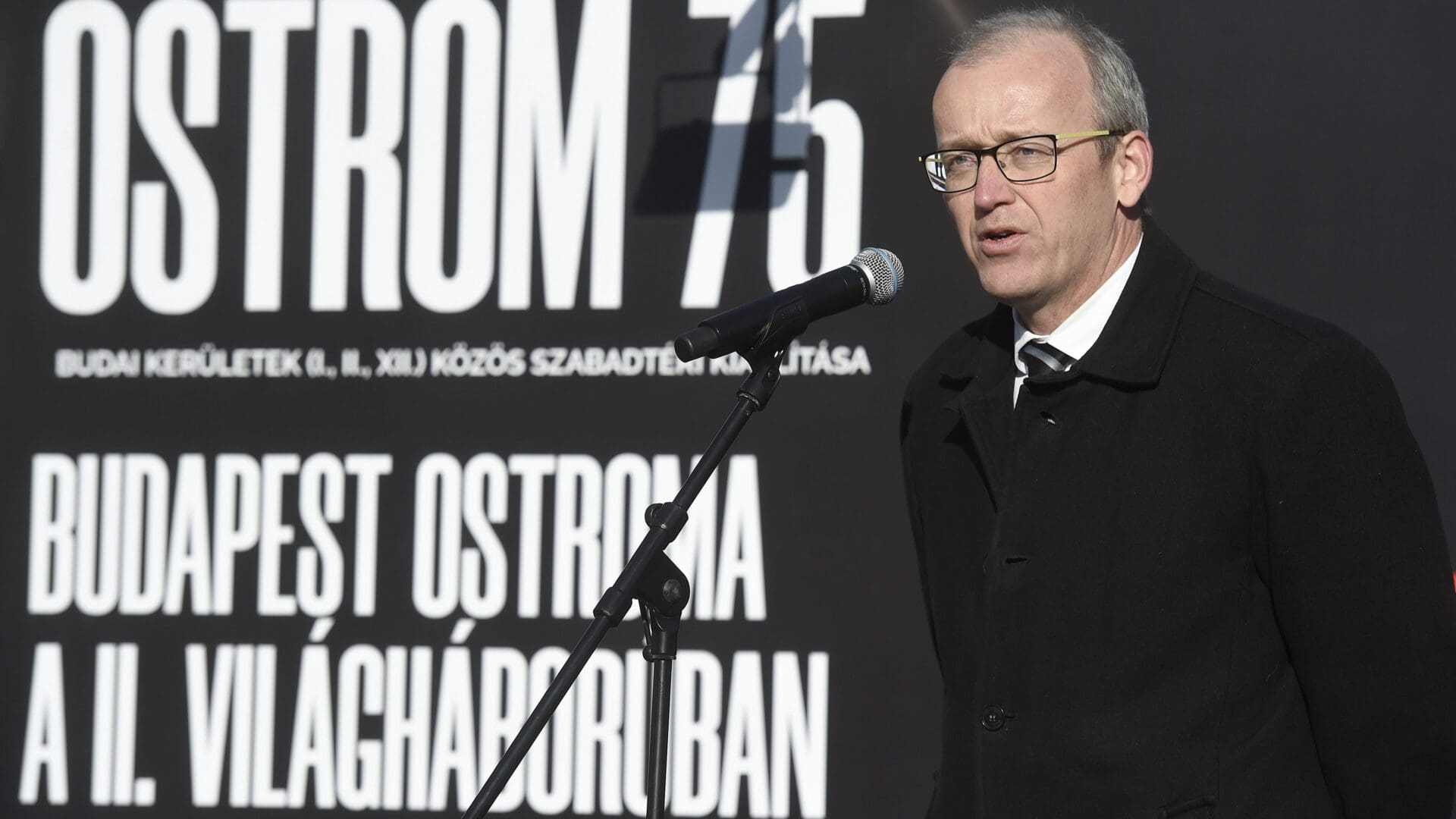The following is a translation of an article, originally published on Mandiner, written by journalist and historian László Bernát Veszprémy, editor-in-chief of corvinak.hu of Mathias Corvinus Collegium..
How much longer do we have to put up with the relativisation of the Holocaust, and the irresponsible usage of the ‘Nazi’ attribute?
The ‘quitting of historical sciences’ of researcher and historian Krisztián Ungváry, who has seen better days, continues. This time, he accused Gergely Gulyás, the Minister heading the Prime Minister’s Office, of using Nazi words in connection with his recent speech defending Hungarian students [in connection with the EC decision to discontinue financing the Erasmus+ and Horizon programmes for Hungarian university students.]
Just for the record, here is what Gulyás said:
‘It is of course true that there is only one human race existing, the Homo sapiens. And, if you like, there are different ethnic groups within that. It is a decision against the Hungarian ethnic group…,the Hungarian race. But if this word bothers you, then let’s just say that it is a Hungarian-hating revenge that specifically affects Hungarians.’
And here is Ungváry’s reaction:
‘The only culture or subculture that uses the term ‘race’ in the sense of, say, Hungarian race, German race, or Aryan race, is Nazi public discourse. So Gergely Gulyás basically managed to express his thoughts with a Nazi terminology.’
As a matter of fact, this article could end here, since Gulyás himself clarified that ‘there is only one human race existing, the Homo sapiens’. After that, he was obviously talking about different ethnic groups of the world, so while it is debatable whether he used an appropriate term or not, it is evident that he did not divide the world into various human races. I should add that even if he had done so, he would not have deviated from today’s mainstream, as, among others, Pope Francis, the US Census Bureau, and the Hungarian anti-government news website 444.hu all regularly use the phrase ‘race’. (In one of its articles from 2018, the latter used the term in a truly ironic way: ‘if that’s what we think, we ignore the most important aspect of the modern cultural left: the racial issue’.)
However, it is worth pondering one question.
How did it become possible for the irresponsible usage of the term ‘Nazi’,
and in this sense the phenomenon of relativising the crimes of Nazism and the Holocaust, to become so rampant in domestic public life?
Where was the responsible, democratic intelligentsia when he should have raised a hand or reminded ourselves of at that particular moral compass?
The truth of the matter is that strict migration policy as such has been labelled as ‘Nazi’ continuously since 2015; Trump, Orbán, and Netanyahu are continually described as fascists and Nazis, and if a right-wing politician utters the same word that the progressive left mentions on a daily basis, the relativisation starts immediately.
The only problem with this is that if everything is ‘Nazi’, then nothing really is.
If a classic conservative, patriotic government that regularly supports Israel is considered ‘Nazi’ and Gulyás’s speech is ‘Nazism’, then this term can no longer be interpreted as referring to the crimes of World War II and the suffering of the victims.
I would encourage all speakers not to call their debate partners ‘Nazis’ since apart from the rabid extreme leftists (see the Antifa attacks) and some genuine neo-Nazis, most people on the Hungarian right and left have nothing to do with real Nazis or communists. Even when used by columnists and journalists, these qualifiers only distort public discourse, make it more difficult to process historical traumas, and obscure our knowledge of the horrors of the twentieth century.
But what can one do when this throwing around of such epithets comes from acclaimed historians?
Is the transformation of academic life into a farce and the revival of the rhetoric associated with abhorrent ideas unstoppable?
Does the wish to overthrow Viktor Orbán really justify anything now? Has the age of ‘it is all the same’ come? How long can the Holocaust be relativised before a responsible intelligentsia says ‘enough of the Weimarisation’, and finally draws a line?
Click here to read the original article








